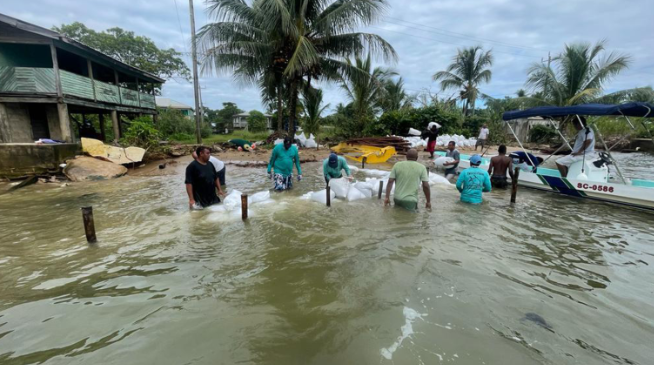Hastings Center News
Building Climate Resilience in the Caribbean: Watch the Webinar, Read the Essays
Caribbean basin countries are experiencing some of the most destabilizing impacts of climate change—destruction of entire villages, increases in diseases and other health harms. In a recent Hastings Center webinar, public health experts and bioethicists discussed ideas for building resilience to climate change. What are the tradeoffs of adapting to warmer environments versus abandoning low-lying locales? What are the responsibilities of policymakers in the region and abroad? Watch the webinar.
Hastings Center research scholar Carolyn P. Neuhaus moderated a discussion with:
Georgiana Gordon-Strachan, director of the Tropical Metabolism Research Unit at Caribbean Institute for Health Research at the University of the West Indies in Kingston, Jamaica and the regional director (Small Island Development States) of the Lancet Countdown
Cheryl Macpherson, professor at St George’s University School of Medicine and a senior research fellow at the Windward Islands Research and Education Foundation in Grenada
Joy St. John, a public health specialist who has worked for more than 30 years in Barbados and at the regional and global levels and is a member of the PAHO Strategic Advisory Group on Sustainable Development Goals and Health Equity.
The webinar included videos vividly illustrating harms from climate change in the Caribbean. Zain Hernandez, a training facilitator in Belize, described a once-prosperous village that has washed away because of coastal erosion (shown in photo). Rosa Erendira Peña Trujillo, a veterinarian in Mexico, discussed the increases in skin cancer and other diseases that she is seeing in the animals she treats.
Hernandez and Peña are among the nine authors of essays in Voices in Bioethics from the Caribbean Basin: Climate, Health and Ethics, the culmination of the yearlong Climate Bioethics Program, a project of The Hastings Center and the Caribbean Research Ethics Initiative (CREEi) and Clarkson University. The essays, published on The Hastings Center’s website in English and Spanish, explore topics like climate change education, community-building, forced migration, public health policymaking, transgenic crops, and humans’ relationship to nonhuman animals. The essays provide innovative thinking about how to build climate resilience, an incremental process of empowering communities to predict, protect against, manage, and recover from climate impacts.
The essays and the webinar were produced by The Hastings Center and the Caribbean Research Ethics and Education initiative (CREEi) and supported by the U.S. National Institutes of Health Fogarty International Center award #3R25TW009731-11S1.

